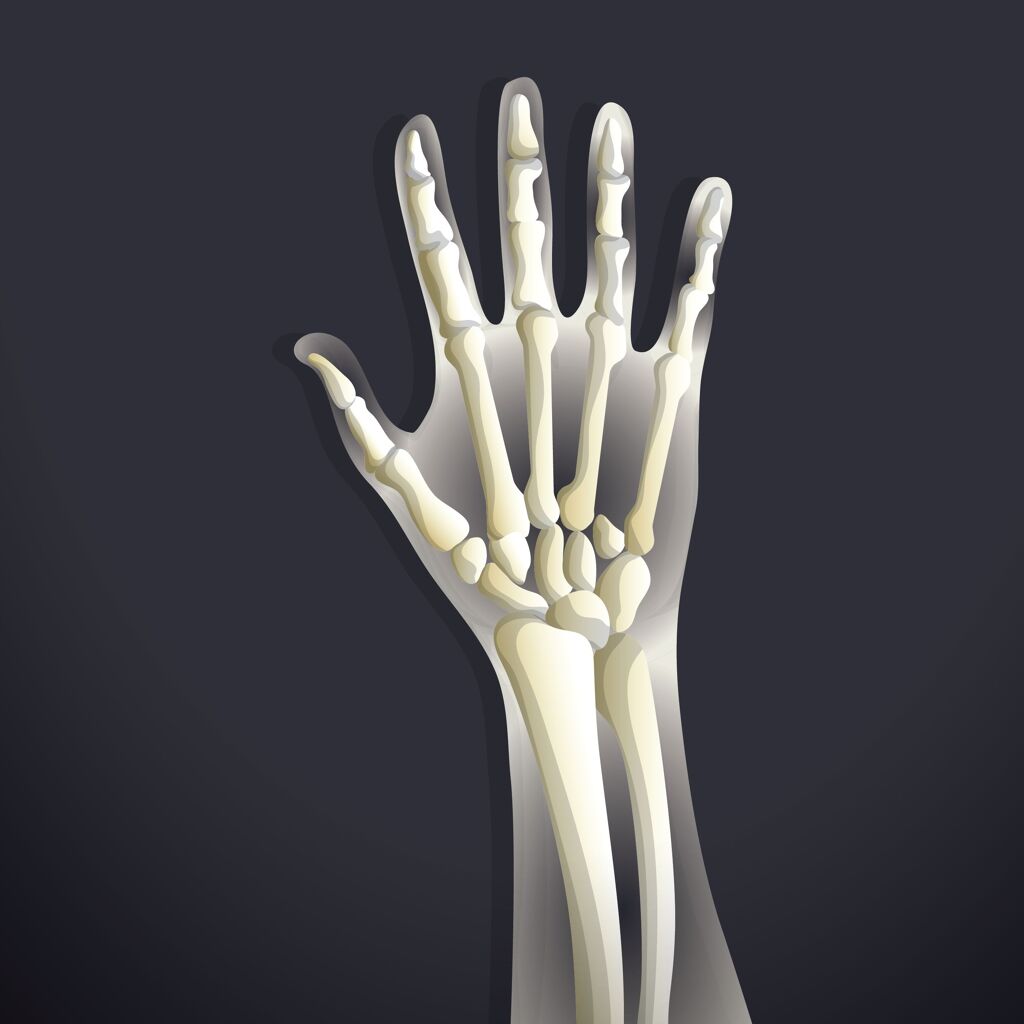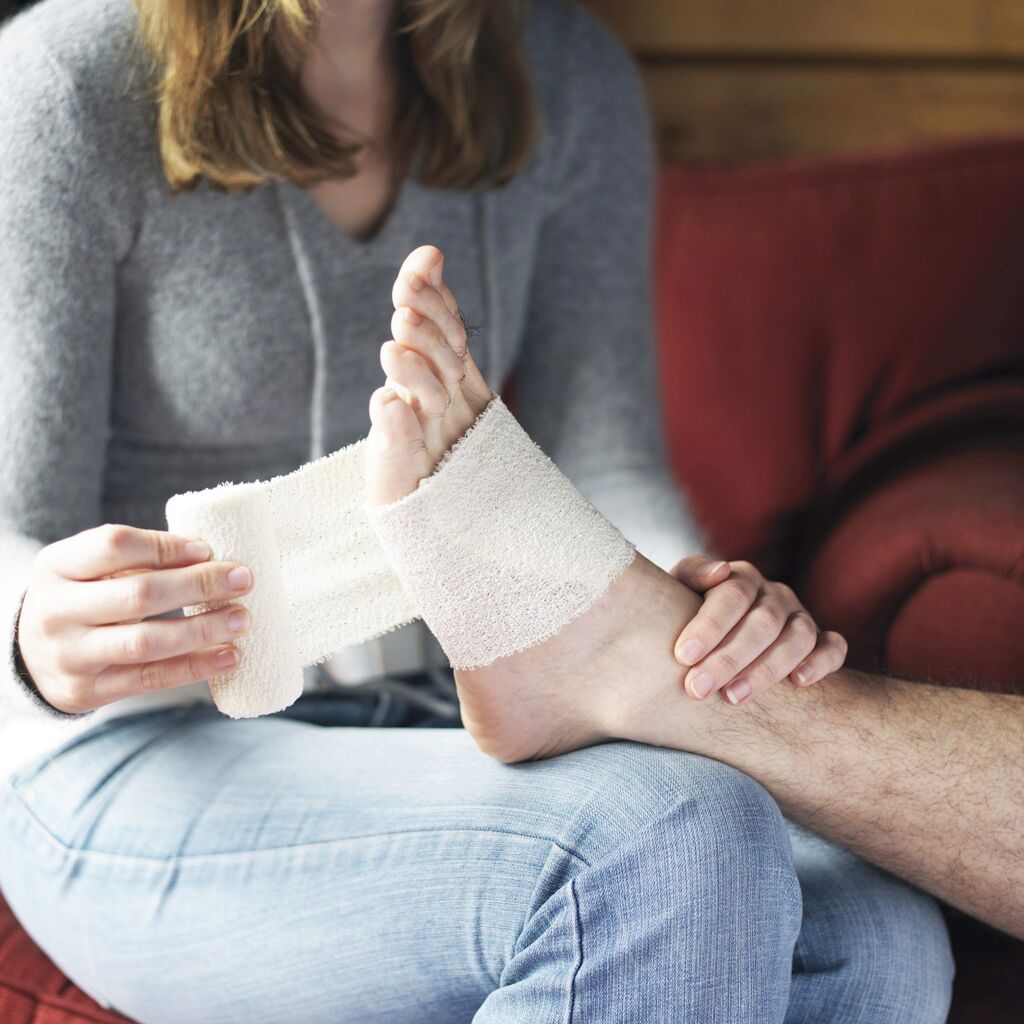Root Causes of Anxiety and Functional Medicine Solutions

Anxiety is the most common mental health issue worldwide. It is estimated that 22.2% of the US population has an anxiety disorder (Schiele MA, 2017).
In this blog on anxiety, you will learn:
- What is anxiety and its symptoms
- What are the root causes for anxiety that are often missed
- How Functional Medicine can help address anxiety disorders
- What solutions are available to reduce or eliminate anxiety disorders
WHAT IS ANXIETY?
Anxiety is a feeling of fear, dread and uneasiness. It is a normal response in the face of danger. Experiencing anxiety from time to time is a normal reaction to stress and part of life. People worry about health, work, money, relationship or family problems.
Overwhelming anxiety that lasts too long is a problem. Irrational, excessive anxiety out of proportion to the situation that interferes with a person’s ability to function in daily life qualifies as an anxiety issue.
- Nearly 39.3% of adults in the US had symptoms of anxiety or depression in February 2021, compared to 32.3% in 2023 (KFF, 2023).
- 18–24-year-olds suffer the most as 50% had symptoms of anxiety/ depression (KFF, 2023).
- Of 25–49-year-olds, 38% suffer from anxiety/ depression, of 50–64-year-olds, 29% do. Senior citizens of 65+ years olds have a 20% prevalence of anxiety / depression (KFF, 2023).
These numbers may be somewhat elevated given they were taken during and just after the pandemic. But the trend is clear, anxiety is on the rise.
For those who suffer from anxiety disorders, the anxiety does not easily go away. It can get worse over time and symptoms often interfere with daily activities of work, school and relationships.
There are several types of anxiety disorders; generalized anxiety disorder (GAD), panic disorder, phobia-related disorders, agoraphobia, social anxiety disorder (social phobia), PTSD, OCD, selective mutism, substance-induced anxiety disorder and separation anxiety.
Generalized anxiety disorder (GAD) is a common anxiety disorder, defined as excessive worry or anxiety about normal daily life which is felt more days than not, for a period of six months or more.
- Anxiety disorders often co-occur with other mental disorders, such as depression or substance use and dependence (Schiele MA, 2017).
- Women are approximately two times more likely to have anxiety than men (Schiele MA, 2017).
SYMPTOMS OF ANXIETY
Common signs and symptoms of anxiety are:
- Feeling nervous, restless, ‘on edge’, panic or a sense of impending danger or doom
- Increased heart rate, hyperventilation, sweating or shaking
- Feeling weak or exhausted
- Difficulty concentrating or thinking about anything other than the present worry
- Having difficulty controlling worry
- Sleeping issues
- Gastrointestinal disturbances
- Having the urge to avoid things that trigger anxiety like social situations
ROOT CAUSES OF ANXIETY
There are certain life circumstances that can contribute significantly to being prone to anxiety. People who have experienced trauma, abuse, a significant accident, serious illness, significant stress, loss like a death or divorce may experience anxiety that lasts for a certain time after the event or that is persistent.
Someone with one mental disorder, such as depression or others, can also have an anxiety disorder. A drug or alcohol addiction can cause anxiety. Certain underlying health conditions can cause anxiety.
In addition, there can be other overlooked or misunderstood root causes of anxiety. Finding the overlooked or unrecognized cause of anxiety could be all that is needed to get back onto the road of optimal health.
Here are some of the unexpected issues that could be the cause of your anxiety:
A Poor Diet
Food and mood are closely linked. A poor diet can actually contribute to or even cause anxiety and other mental health issues. A poor diet can cause insulin surges and poor blood sugar control, inflammation, poor immune system function, impaired gut health and metabolic syndrome. These physiological issues will absolutely affect mood, brain function and mental health.
Practical examples include too much sugar in the diet causing blood sugar to crash which can make you feel shaky and anxious. Excessive caffeine can have the same effect. Too many inflammatory foods cause inflammation in the brain and the gut. These can contribute to an anxiety disorder. Unknown food sensitivities will increase inflammation if not removed from the diet. A diet high in processed foods contains chemicals and toxins which can contribute to toxic overload and anxiety.
Gut Issues
A little-known fact is that gut issues can cause mental health issues. Imbalances in the gut can contribute to depression, anxiety and a lower stress resilience.
Gut dysbiosis is a cause of mental illness. Dysbiosis is an excess of bad gut bacteria in relation to good and healthy gut bacteria in the gut microbiome. Gut dysbiosis usually causes digestive symptoms and can contribute to anxiety, depression and other mental illness. Dysbiosis can be caused by many things; a poor diet, stress, antibiotics, other medications, alcohol and other toxins that change the normal microbiome balance and contribute to dysbiosis.
During dysbiosis, the gut brain axis is dysregulated. The blood-brain barrier (BBB) becomes more permeable. Bad gut bacteria produce more LPS toxins, which cause inflammation. This inflammation, due to LPS and other microbes, increases pro-inflammatory cytokines (Rutsch A, 2020). With a permeable BBB, these cytokines and toxins get into the brain, leading to neuroinflammation.
This is how gut dysbiosis can cause neuroinflammation and inflammatory gut/brain conditions, such as anxiety and depression (Rutsch A, 2020).
Dysbiosis & Leaky Gut
Dysbiosis leads to increased intestinal permeability, letting substances such as bacteria and other toxins leak through the gut lining and into systemic circulation in the body. This is called leaky gut syndrome. Gut microbiota control the degree of gut permeability. Increased gut permeability is inflammatory, damages the immune system and is involved in anxiety (Clapp M, 2017).
Dysbiosis & IBS
IBS is a common disorder of the gut-brain axis. IBS is chronic abdominal pain with either constipation or diarrhea. Up to 50% of people diagnosed with IBS also have an anxiety disorder (Margolis KG, 2021). People with IBS have 3 times higher risk of anxiety (Margolis KG, 2021).
Often, people with IBS have issues such as trauma, stress or abuse that can trigger anxiety. But 50% of IBS patients have an intestinal trigger for their anxiety (Margolis KG, 2021).
In many cases, IBS is a driver for mood disorders and happens even before the mood disorder does (Margolis KG, 2021). People with higher baseline levels of anxiety and depression are more likely to develop IBS. Conversely, people with IBS report higher levels of anxiety or depression (Margolis KG, 2021).
Depression & Anxiety
Gut dysbiosis and gut inflammation are potential causes of anxiety and depression (Clapp M, 2017).
In one study, endotoxins, like LPS, were infused into healthy subjects with no history of depression (Clapp M, 2017). The LPS triggered a release of inflammatory cytokines, which triggered classic depressive symptoms. The increased levels of inflammatory cytokines are correlated with symptoms of anxiety and depression. In this case, the toxins and LPS induced pro-inflammatory cytokines created inflammation which caused mood issues that led to anxiety and/ or depression (Clapp M, 2017).
Anxiety, Fear & the Gut
The fear response is closely linked to stress and the gut-brain axis. Fear is regulated by the amygdala and hippocampus in the brain. These brain regions, and the rest of the brain, are affected by changes in gut bacteria (Cryan JF, 2019).
Fear responding in lab rodents can be affected by different strains of probiotics. For example, Bifido bacterium longum can reduce stress-induced cortisol increases and decrease anxiety (Cryan JF, 2019). Another probiotic, Lactobacillus plantarum, can lower pro-inflammatory cytokines, stress and anxiety (Cryan JF, 2019).
Proteobacteria and Bacteroidetes are both gram negative bacteria which produce LPS and are involved in mental health. People with distress, anxiety, depression, and a high stress perception have higher levels of Proteobacteria (Peter J, 2018). Patients with anxiety have higher Bacteroidaceae (Peter J, 2018).
Toxins & Anxiety
Toxins can come from insecticides, herbicides, personal care products and thousands of other industrial and household chemicals. Environmental and chemical toxins can affect brain chemistry in ways that contribute to anxiety and depression. Here are a few to watch out for:
- Chronic mercury exposure from sources like dental amalgams is associated with anxiety, fatigue and depression (Kern JK, 2014). Removing these amalgams can improve symptoms (Kern JK, 2014).
- Long-term lead exposure is linked to generalized anxiety disorder (Vorvolakos T, 2016). High blood level concentrations of lead can induce psychotic symptoms, delusions and hallucinations (Vorvolakos T, 2016).
- The EPA, Environmental Protection Agency, says that mercury, lead and arsenic can negatively impact health, potentially causing anxiety and/or depression. Heavy metal toxicity disrupts brain function and the immune system (Bouchard M, 2009).
- Environmental pollutants (air pollutants, heavy metals, ionizing radiation, pesticides, light pollution, noise pollution, environmental catastrophes) are associated with anxiety, mood and psychotic syndromes (Ventriglio A). These pollutants affect the brain and long-term exposure can cause stress and anxiety (Ventriglio A).
- Glyphosate (Gly) is the most used herbicide in agriculture. It has known probable carcinogenic effects. It also inhibits beneficial gut bacteria. Gly can cause dysbiosis, which we previously saw contributes to anxiety. The overgrowth of bad bacteria and Gly-induced intestinal dysbiosis has neurological effects, which affect anxiety disorders (Rueda-Ruzafa L, 2019).
- Pesticide exposure likely leads to anxiety, depression and psychiatric disorders. A study on farmers with a history of low-level exposure to pesticides found they more likely suffer from anxiety than people not exposed to pesticides (Harrison V, 2016). Conventionally grown non-organic food is grown with pesticides. If we eat that every day, we are exposed to pesticides every day.
Infections
Different types of infections can cause anxiety and mental health issues. The immune system dysfunction caused by the infection may result in anxiety symptoms.
As infection enters the body, the immune system produces antibodies to fight the infection. Sometimes these antibodies mistakenly attack healthy cells in the brain. This causes brain inflammation and symptoms such as anxiety and depression.
In these cases, the patient may not have an anxiety disorder but rather an infection of the brain that can trigger an autoimmune process in the brain. Symptoms, such as irrational fears (phobias), anxiety or panic attacks, could result from an autoimmune attack on the brain. Chronic anxiety symptoms that will not go away can be due to an autoimmune response, triggered by common infections (Frankovich J, 2017).
Severe infections in childhood are linked to major depression, overanxious disorder, separation anxiety and specific phobias (Goodwin, 2011).
Strep:
A strep throat infection can be the trigger for neuropsychiatric symptoms in childhood such as anxiety, obsessive-compulsive disorder (OCD) and tic disorders. As a result of the infection, antibodies against brain tissue are created, which cause structural damage to the brain, neuroinflammation and symptoms.
Viral infections:
A virus can be a significant cause of illness, inflammation, immune problems and mental health issues. Viruses like Epstein-Barr, herpes simplex virus, chicken pox / shingles, and now COVID-19 are common.
Everyone contracts viral infections and most people usually recover completely. However, viruses are linked with mental health issues, which can develop in the weeks or months after a viral infection.
Bacterial infections are typically fully eliminated from the body. Exceptions to this rule are Lyme and Bartonella.
Viral infections, however, remain dormant in the body. A virus can be re-activated at any time. It can become a low-level chronic infection, even after the acute symptoms resolve. Stress is one of the main triggers for reactivation. When the immune system becomes overwhelmed by something else, a virus can re-activate. If you are under constant stress and too weak to fight the virus off, it can develop into a chronic underlying viral infection.
Bacterial or parasitic infections and exposure to toxins (mold toxins or toxic metals) can trigger the reactivation of latent viral infections. Other viruses such as COVID-19 may be able to reactivate dormant viruses like Epstein-Barr Virus. Chronic viral infections can cause neuroinflammation or brain antibodies that can lead to anxiety and mental health issues.
To Read About Blog Topic, Scroll Down
Want To Work With Our Clinic?
Do you have a chronic or mystery illness that no one has been able to help you with? Are you simply wanting to re-connect with a healthier version of yourself? It’s Time To Finally Feel Better!
Lyme Disease & Co Infections:
Lyme disease is a bacterial infection, caused by the bacterium Borrelia burgdorferi. Borrelia is most commonly spread via tick bites. Lyme disease is a complex inflammatory disease with both acute and potentially chronic symptoms.
When left untreated, undiagnosed or misdiagnosed, Lyme disease can possibly develop into more serious symptoms. It can cause inflammation in the brain and mood symptoms. Neuropsychiatric problems such as anxiety, depression, panic and OCD can develop.
A Lyme disease co-infection occurs when someone is infected with other diseases transmitted by the same tick. A tick can carry disease-causing microbes or co-infections in addition to Borrelia. Once bitten, it is possible to contract Lyme and one or more co-infections simultaneously. Possible Lyme co-infections include Bartonella, Anaplasmosis, Babesiosis, Powassan virus, Borrelia miyamotoi (relapsing fever-like illness) and Ehrlichia muris (which causes ehrlichiosis) (Eisen, 2018). Anxiety is frequently a symptom of Lyme co-infections.
Mold Toxins:
Mold is a significant and under-examined issue that contributes to chronic inflammation and illness. Mold toxins (mycotoxins) are biotoxins that can cause illness after exposure to toxic mold.
People living or working in moldy buildings can develop mold illness. Symptoms of mold illness include a variety of health problems including pain, fatigue, increased anxiety, depression and others (Harding CF, 2020). In studies on mice, exposure to mold increased anxiety-like behavior and the feeling of fear (Harding CF, 2020).
Light & the Circadian Rhythm
Lack of sunlight, excess blue light at night and screen time have an impact on mental health. In the largest study on light exposure and mental health to date, anxiety and depression were linked to night-time light exposure.
Too much night-time light increased the risk of mental health issues including generalized anxiety disorder, major depressive disorder, PTSD, psychosis, bipolar disorder and self-harm behavior (Burns AC, 2023). Equally, more daytime light exposure is associated with lower risk of anxiety and mental health issues.
We spend around 90% of the day indoors in electric lighting which is too dim for the day-time and too bright for night-time, compared to the natural light and dark cycles. This is confusing to the body and can have negative mental health effects (Burns AC, 2023). A proper light and dark schedule may be a simple way to improve anxiety (Burns AC, 2023).
Social Media & Anxiety
Is the increase in anxiety disorders related to social media? One study looked at 18–22-year-olds and found a positive association between social media use and anxiety (Vannucci A, 2017). More time spent using social media was significantly linked to worse symptoms of anxiety in study participants. The people using more daily social media had a greater likelihood of a probable anxiety disorder (Vannucci A, 2017).
Given all of these different possible causes, how can you move forward in resolving anxiety? In Functional Medicine, we look at all of these, and other potential, root causes of anxiety.
FUNCTIONAL MEDICINE SOLUTIONS
There are many practical things you can do yourself to help reduce anxiety.
Get help. We advise seeking help for your root cause(s) of anxiety as soon as possible. Whether it is a particular medical condition causing the anxiety, substance abuse, past trauma or excessive stress, the sooner you seek help the better. See a Functional Medicine practitioner who can help you with gut issues and imbalances, chronic underlying infections, Lyme disease or a co-infection, mold illness, toxic overload, issues with detoxifying toxins or other potential causes of anxiety.
Stay active. Take part in activities that you enjoy and that make you feel good about yourself. Spend time being social with caring friends and family who can support you.
Avoid alcohol or drug use. Alcohol and drug use can cause or worsen anxiety. If you’re addicted to any of these substances, get help quitting. Withdrawal can increase anxiety so see your doctor or find a support group to help you.
Closely linked to avoiding substance abuse is to avoid medications. Prescription medications sometimes alter brain chemistry. Antibiotics, SSRIs for depression or anxiety, ADHD meds, corticosteroids, decongestants, migraine meds, NSAIDs, PPIs and other medications can cause anxiety symptoms. Possible side effects include nervousness, rapid heart rate, trembling or trouble sleeping.
Try Running Instead. Antidepressant medication and running therapy were compared as treatment for depression and anxiety. The treatment was either to take antidepressant medication or to start running 45-min outdoors for 16 weeks 2-3 times a week. The verdict? Antidepressant medication and exercise have similar rates of success! Running improved mental health in 43.3 % of study participants, which is essentially equal to antidepressants, which improved mental health in 44.8 % of study participants (Verhoeven JE, 2023).
While the 2 treatments had comparable effects on mental health, running therapy outperformed antidepressants on physical health. The runners saw significant health improvements while the antidepressant group experienced a worsening in health indicators (Verhoeven JE, 2023). The antidepressant users had increases in waist circumference, blood pressure and triglyceride levels, suggesting increased metabolic syndrome and higher cardiovascular risk (Verhoeven JE, 2023). The runners had a decrease in both metabolic syndrome factors and heart rate leading to better cardiovascular health (Verhoeven JE, 2023).
Avoid Circadian rhythm dysregulation.
Get onto the right light schedule! Get bright light in the day and darkness at night. Use natural light during the day. Go outside for a walk early morning to set your circadian rhythm. If you can’t go early morning, a walk outside at any time of the day is still good. As the sun starts going down, dim your indoor lights. Try to avoid screens as much as possible later in the day. Getting your circadian rhythm properly aligned with natural light helps for better sleep, better blood sugar control and better mental health.
Reduce screen time
Minimize your insta and social media time. We all know that people only put their best selves forward on social media to look very happy or successful. If you then compare yourself to this idealized version, it can induce self-esteem and mental health issues. Remember, comparison is the thief of joy!
Eat a healthy diet that balances your blood sugar. Avoid an unhealthy inflammatory diet that includes too much sugar, refined carbohydrates, GMOs, highly processed foods, lack of fiber, excess caffeine or alcohol. Follow a gluten-free Mediterranean or Paleo diet.
Improve your Gut Health
Improve your Gut Health by reducing Inflammation in the gut, and as a result, in the brain. Address GI issues like dysbiosis, leaky gut and many others.
Resolve gut infections by using a Functional Medicine approach or seeing your Functional Medicine practitioner.
- Follow a gut-healthy diet (try an anti-inflammatory one like a gluten-free Mediterranean diet). Focus on fiber (try chia seeds and chia pudding), vegetables and fruits. Avoid processed food, added sugars and artificial additives which disrupt gut health.
- Include both probiotic (try yogurt, kefir, sauerkraut and kimchi) and prebiotic (try garlic, onions, leeks, banana and asparagus) foods in your diet. Prebiotics and probiotics can reduce the effects of stress, stress-related behavior and HPA axis activation, which will calm anxiety (Cryan JF, 2019).
- Certain probiotic strains increase or decrease symptoms. The conditions that probiotics can influence include anxiety, depression, OCD, perceived stress and many others (Cryan JF, 2019). Bifidobacterium and Lactobacillus can improve IBS symptoms, which is linked to anxiety (Margolis KG, 2021).
- Prebiotics are actually even more effective in stimulating good healthy gut bacteria. Prebiotics are food for the good gut bacteria. They are high in fiber and include raw asparagus, garlic, onions, jicama, unripe bananas, tomatoes, apples, berries and mangos.
Manage Stress
Avoid excessive stress, be it physical or emotional. Learn to manage stress with time to yourself, meditation, time with loved ones, time in nature, breathing exercises, yoga, guided meditations through apps like Insight timer, tai chi or whatever else helps you to switch off (but is not alcohol, drugs or screen time for reasons already mentioned). Practicing mind-body techniques like meditation, mindfulness, breathing exercises, Tai Chi, Chi Gung and yoga improve GI symptoms, mood and mental health.
Reduce toxins
Clean up your environment so that you can avoid toxins like mold, chemicals & others.
Look to resolve toxic relationships or trauma, excess stress in any area of life, addiction, sleep deprivation and other unhealthy situations or habits.
SUMMARY
Anxiety is the most common mental health problem. 22.2% of the US population has an anxiety disorder (Schiele MA, 2017).
There are multiple causes for anxiety. It can be something unexpected or overlooked. In Functional Medicine, we look for less well-known root causes of anxiety like:
- Poor diet: Is it excess sugar or caffeine, too many processed foods, or an inflammatory gut-damaging diet?
- Gut problems: Gut infections, leaky gut and imbalances between the good and the bad bacteria (called dysbiosis) can all directly or partially contribute to anxiety disorders.
- Toxin exposure: Excessive exposure to toxins like pesticides, heavy metals or chemicals in food and personal care products and other toxins, can all contribute to an anxiety disorder.
- Infections: An infection like strep throat, a virus, Lyme disease, a Lyme co-infection or mold illness from mold toxins can cause anxiety.
We recommend a number of things you can do to improve and resolve your anxiety:
- Avoid alcohol, drugs and meds wherever possible.
- Exercise
- Rebalance your circadian rhythm by re-setting your light/ dark schedule and reducing unhealthy screen and social media time
- Improve your diet
- Get gut issues resolved by seeing your FM practitioner. Eat or supplement fiber, probiotics and prebiotics.
- Reduce and manage stress
- Reduce exposure to toxins. This includes exposure to chemicals in food, personal care products, your home or a moldy environment. It also includes toxic relationships, unresolved trauma, excessive stress and other anxiety-inducing situations or habits.
** Follow us for our next Blog on the Functional Medicine approach to Chronic Disease **
As always, please get in touch with us. If you or someone you know is struggling with anxiety, contact our clinic today. We can work on any issue(s) and improve your health. Book a free health evaluation call with us today, to see how we can help you with your concerns. We can answer your questions and help you book an initial consult with one of the functional medicine doctors in our clinic.
Are You Suffering From A Chronic Illness?
Does your current health situation look like this…
- Do you feel that you have tried many things and either nothing works, or the treatment does not hold?
- Have you been told that there is nothing that can be done to reverse your illness and you just need to manage symptoms?
- Does your illness impact your work, your family, your happiness and your social life?
We specialize in finding answers and solutions for complicated chronic illness when people feel like they have tried everything. If this sounds like you, book a free call with us to see if we are the right fit for your health goals.
Dr. Miles has spoken for the following organizations:
















